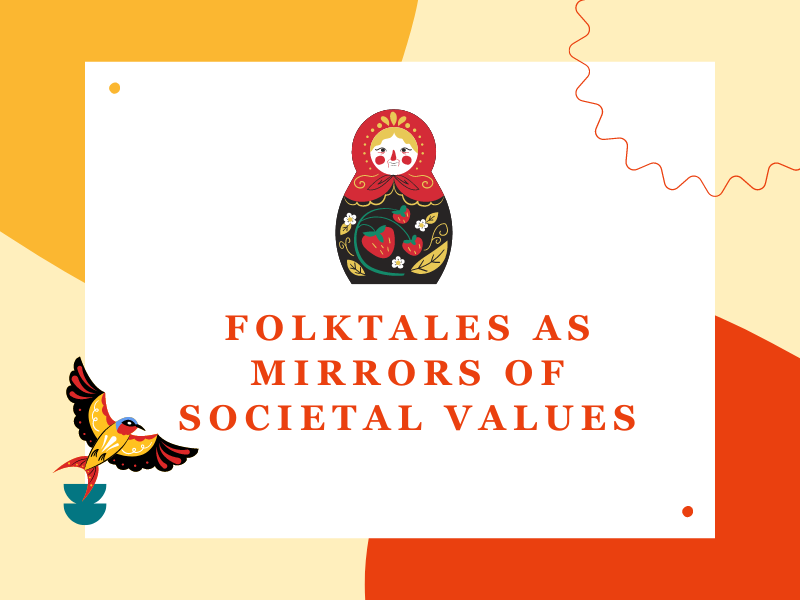Folktales passed down from generation to generation, hold a special place in the heart of human storytelling. These captivating narratives have traversed time and space, transcending cultures and boundaries to connect people from all walks of life. Whether it’s the enchanting tales of magical creatures, heroic adventures, or moral dilemmas, folktales continue to weave their spell on listeners, young and old alike.
Beyond their entertainment value, folktales carry deeper significance as cultural repositories, preserving the values, traditions, and wisdom of the societies that crafted them. These timeless treasures have served as moral compasses, guiding communities through life’s challenges and offering glimpses into the intricacies of human behaviour. As we embark on this journey into the world of folktales, we shall discover the profound ways in which these stories mirror the essence of the societies they originate from.
The Cultural Significance of Folktales
Folktales hold a profound cultural significance, transcending time and space to carry the essence of a community’s collective consciousness. These narratives are more than just entertaining stories; they serve as repositories of cultural values, customs, and traditions. As they pass from elders to youngsters, folktales instil a sense of cultural identity and belonging, reinforcing the shared values and principles that form the bedrock of a society. Each tale is a reflection of the people’s history, struggles, triumphs, and aspirations, fostering a deep emotional connection between past, present, and future generations. Moreover, folktales act as a moral compass, teaching valuable life lessons that guide individuals in navigating their roles within the community and society at large. Through these timeless tales, cultural values are preserved, celebrated, and transmitted, ensuring the continuity of a community’s unique heritage and wisdom.
The Themes and Motifs of Folktales
Delving into the themes and motifs of folktales reveals the cultural intricacies and nuances that differentiate one community from another. While universal themes unite humanity in shared values, each culture infuses its distinct flavour into these narratives, reflecting its unique historical, geographical, and social context. Themes may vary from culture to culture, encompassing elements such as the significance of family bonds, the celebration of diversity, the rewards of humility, and the consequences of greed or arrogance. Moreover, folktales often incorporate mythical creatures, magical objects, and supernatural occurrences, symbolizing the cultural beliefs and spiritual practices of a community. By analyzing these recurring patterns, researchers and enthusiasts gain invaluable insights into the values and aspirations that shape the ethos of diverse societies. The richness of folktales lies not only in the captivating stories themselves but also in the profound messages they impart, fostering understanding and appreciation for the multifaceted tapestry of human culture.
Folktales as Cultural Time Capsules
Folktales, like precious cultural time capsules, transport us to bygone eras, providing invaluable snapshots of the past. As we immerse ourselves in these captivating narratives, we embark on a journey through time, witnessing the realities and dreams of generations long gone. Each folktale serves as a vivid tableau of historical contexts, painting vivid portraits of ancient societies, customs, and traditions. From humble villages to majestic kingdoms, these tales unfurl the tapestry of human life, offering glimpses into the struggles and triumphs of everyday people. Through the interactions of their characters, we discern the intricacies of interpersonal relationships, family dynamics, and communal bonds. Folktales encapsulate the shared experiences and collective wisdom of diverse cultures, forming a mosaic of human existence that transcends geographical boundaries. As we embark on this exploration of folktales as cultural time capsules, we peel back the layers of history to uncover the essence of human connection and the enduring legacy of our ancestors.
The Influence of Environment and Geography
The allure of folktales lies not only in the enchanting characters and compelling plots but also in the vivid depiction of the environments and landscapes that frame these captivating narratives. Across the globe, folktales draw inspiration from the geographical diversity that surrounds their place of origin. In the lush greenery of the rainforests, we encounter tales of mystical creatures and enchanted forests. Amid the vast expanse of arid deserts, stories of perseverance and resilience unfold. The serene beauty of mountain ranges sets the stage for epics of heroism and adventure. Coastal regions inspire fables of seafaring adventures and maritime folklore. By closely observing the settings described in these tales, we gain deeper insights into the cultural and ecological contexts that shape the beliefs, customs, and way of life of the communities from which they emerge. In this exploration of the influence of environment and geography on folktales, we embark on a wondrous journey of discovery, uncovering the inseparable bond between humanity and nature.
Folktales as Agents of Socialization
In the realm of folktales, a powerful process of socialization unfolds, intricately weaving the fabric of cultural identity and moral guidance for the younger generation. As children immerse themselves in these captivating narratives, they absorb the collective wisdom and values that have been cherished by their ancestors for generations. Through the trials and triumphs of characters in folktales, children internalize the significance of compassion, integrity, and respect for others. These stories become more than just bedtime tales; they become life lessons that shape their understanding of right and wrong, good and bad. As children grow, the seeds of virtue sown through folktales continue to bear fruit, influencing their decisions, behaviours, and relationships with others. The shared experiences and shared values found in folktales bind communities together, fostering a sense of cohesion and unity among individuals who share a common cultural heritage. In this way, folktales become powerful agents of socialization, shaping the moral compass of societies and ensuring the continuity of cherished traditions and beliefs for generations to come.
Diversity and Variations in Folktales
Folktales, while sharing common moral themes, are also captivating for their rich diversity and regional flavours. As these tales journey across lands and generations, they adapt and morph, taking on the distinct characteristics and customs of the communities that embrace them. Each culture infuses its unique essence into the narratives, adding layers of depth and meaning that speak to their particular values and beliefs. For example, a tale of bravery may emphasize different virtues in one culture compared to another, showcasing how the same theme can take on various interpretations. These variations serve as cultural mirrors, reflecting the values and identities of the societies from which they originate. By examining these differences, we embark on a fascinating exploration of the multifaceted tapestry of human experiences, recognizing that while we may share universal aspirations, the paths we take to achieve them differ and enrich our collective understanding of the world. Folktales become intricate puzzles, inviting us to piece together the diverse expressions of societal values, acknowledge the beauty of cultural intricacies, and celebrate the uniqueness that makes each community special. In embracing the diversity of folktales, we embrace the diversity of humanity, weaving a tapestry of respect, appreciation, and interconnectedness across the vast expanse of human cultures.
Conclusion
In conclusion, folktales hold an irreplaceable place in the tapestry of human history and culture. These captivating narratives not only entertain but also serve as reservoirs of wisdom, reflecting the values, customs, and beliefs of diverse societies. Through their timeless appeal, they transcend borders and time, carrying the shared experiences of humanity across generations. As we explore the themes, motifs, and variations of folktales, we unearth the treasure trove of societal values that have guided communities throughout time. From moral lessons to cultural insights, these tales illuminate the rich tapestry of human existence, celebrating both our unique identities and the common thread that binds us together. As we continue to pass down these stories from one generation to the next, we preserve not only our cultural heritage but also the enduring power of values that shape our humanity. In embracing folktales as the cultural gems they are, we embrace the profound lessons they hold, and the infinite potential they have to inspire, educate, and unite us all. Through the magic of storytelling, we celebrate the diversity that enriches our world and embrace the universal truths that make us one human family.

